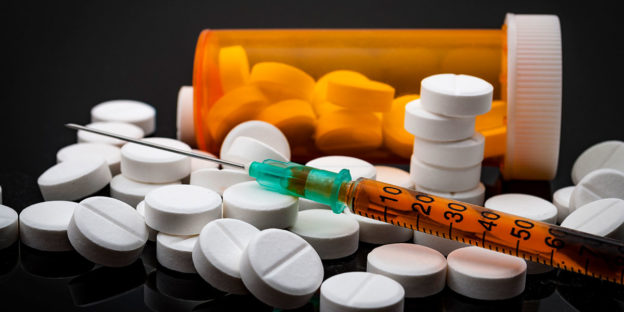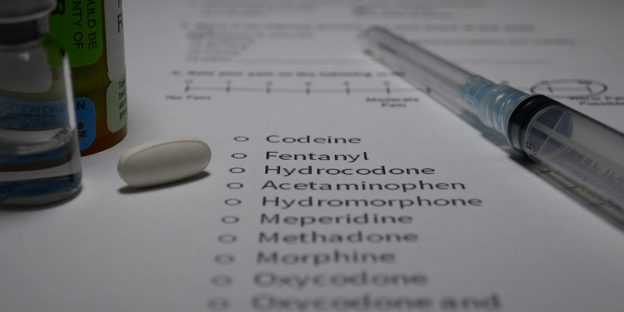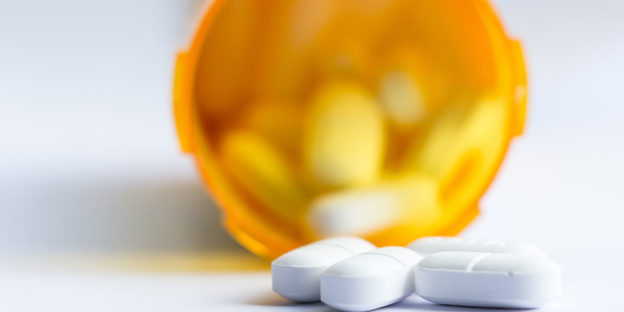When most people think of prescription drug abuse, they think of opioids. The prescription opioid epidemic has gotten a lot of media attention and these are the prescriptions most people think about when they hear about addiction, but, there are actually 3 commonly abused classes of prescription medication: opioids, stimulants, and benzodiazepines. The symptoms you experience when you abuse these medications vary based on the type of medication as well as your level of abuse. If you are experiencing and of the following symptoms and you worry that you may have a problem with prescription drug abuse, it is time to speak with your doctor about treatment.
Inpatient rehab is often the first choice, especially for doctors who realize the dangers involved in addiction and withdrawal. If you’re not sure how to choose the best rehab center or you need more information about local inpatient rehab centers near you, call our helpline toll-free at 1-888-605-7779 today. We’ll help you find a residential rehab center that can treat prescription drug addiction safely and effectively so that YOU can get well.
Opioids
Prescription opioids are used to treat pain. Common examples include oxycodone, hydrocodone and codeine. In addition to the hundreds of opioid analgesics that are on the market and available by prescription, illicit opiates such as opium and heroin are also widely abused throughout the United States. Although opioid withdrawal is rarely fatal, prolonged users may experience symptoms of low blood pressure, seizures or other complications when they quit abruptly. As such, it is recommended that you seek inpatient rehab when you decide to quit taking opiates or any other prescription medication. Call our helpline at 1-888-605-7779 to be connected with an inpatient rehab specialist that can assist you.
Signs of prescription opioid abuse may include:
- Feeling no pain
- Sedation
- Vomiting
- Flushed or itching skin
- Nausea
- Constipation
- Slowed breathing rate
- Drowsiness
- Poor coordination
- Poor judgement or confusion
- Nodding off
- Heavy limbs
If you’re struggling with any of these symptoms, addition is a real threat and you should be concerned. Help is available if you’re ready to get sober.
Stimulants
Prescription stimulants are typically used to treat sleep disorders such as narcolepsy as well as behavioral disorders such as ADHD otherwise known as attention deficit hyperactivity disorder. Commonly prescribed stimulants include Ritalin and Adderall. Most of these are considered Schedule III or Schedule IV controlled substances as they have a relatively low potential for abuse and misuse but this does not mean that taking these medications for ANY reason other than prescribed is safe. In fact, misuse of stimulants may lead to addiction and attempting to quit taking them cold-turkey will most definitely lead to withdrawal symptoms that require a professional level of monitoring and care.
Signs of prescription stimulant abuse include:
- Unexplained weight loss
- Paranoia
- Insomnia and trouble sleeping
- Increased hostility
- Seizures
- Increased heart rate
- Increased temperature
- Increased blood pressure
- Irregular heartbeat
- Irritability or agitation
- Anxiety
- Excessive hours of awake time (sometimes staying awake for days)
- Upbeat behavior and excessive activity
If you’re abusing stimulants, it’s important to seek the help of an inpatient rehab that can provide medically monitored detox. While certain prescriptions, such as opioids, are not likely to lead to life-threatening withdrawal symptoms (you may feel like you’re going to die but you’re generally not at serious risk of death), stimulants require a tapering method in order to safely reduce risk of life-threatening withdrawal symptoms during detox. Failure to seek medical treatment when you detox could lead to dire consequences including seizures, coma or death.
Benzodiazepines
These medications are used to treat anxiety and sleep disorders such as insomnia or the inability to fall asleep. Common examples of prescription benzos include include Xanax and Valium. These medications are usually considered Schedule IV controlled substances as they have a relatively low potential for abuse and misuse, but don’t mistake that for believing that these medications are “safe.” In fact, Benzodiazepines account for thousands of overdoses and are to blame for many drug related deaths each year. Mixing these medications with alcohol or with other medications especially opiates or stimulants could prove deadly.
Signs of prescription benzodiazepine abuse include:
- Unsteady walking
- Weakness
- Anxiety
- Anorexia
- Headaches
- Insomnia
- Difficulty breathing
- Slurred speech
- Lack of coordination
- Blurred vision
- Dizziness
- Drowsiness
- Confusion
- Problems with memory
- Sleeping excessively
If you’re using benzos such as Valium, Ativan or Xanax and you need help, call 1-888-605-7779 to be connected with an inpatient rehab specialist that can assist you.
Additional Signs of Prescription Drug Abuse or Misuse
The previous signs and symptoms are all physical and emotional. But, there are also behavioral cues that point to the possible abuse of prescription medications. In addition to the common symptoms of abuse listed above, you may notice a loved one is acting weird or out of sorts. Maybe you have experienced the first-hand behavioral patterns of the addiction of a loved one without even realizing what was happening right before your eyes. For instance, if you have a loved one that is doctor shopping, calling in fake prescriptions, or blaming others for taking his or her prescriptions, there may be a deeper problem that he or she is not telling you about.
With prescription drugs, any use of the medication that is not EXACTLY as prescribed could be a sign of addiction and is surely a sign of abuse. If your loved one loses medication, takes more than prescribed, or uses the medication for any reason other than for what the doctor prescribed it for, consider calling for help. Our phone number is 1-888-605-7779. We can help you differentiate between abuse and addiction, and if you decide that someone you love needs help, we’ll connect you with an inpatient rehab center near you today.
Look out for these additional signs that someone you care about is abusing potentially dangerous medications:
- A pattern of “losing” prescriptions, so that it’s ok to ask for another to be written
- Seeking and/or obtaining prescriptions from multiple doctors
- Appearing to be high, oddly peppy, or sedated
- Poor decision making
- Decrease or increase in sleep
- Remarkable hostility or mood swings
- Taking larger doses than prescribed
- Taking medication more frequently than prescribed
- Forging, stealing, or selling prescriptions
- Doctor shopping—using multiple doctors to get prescriptions




